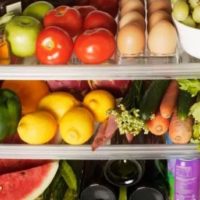In your busy schedule, keeping an eye on the content of your fridge can be at the bottom of a long list of priorities. How frustrating is it to open a drawer in the refrigerator and realize that the expensive margarine that you purchased a few days ago has gone stale? And what about carrots that lie forgotten in the crisper? It can be incredibly frustrating when, after a busy week, you turn to the fruits you’ve been looking forward to, only to discover that they have expired.
Expired produce is a primary reason for food waste, not to mention wasting your hard-earned money. Food waste has become a huge global issue, while most people struggle to put food on the table. Thankfully, you can crack your way to fresher, healthy foods with some simple methods below.
Appropriate freezing
Before they go off, arrange food in the refrigerator correctly and store certain fruits and vegetables together in the correct pairings. This is a simple method to prolong the life of your diet. Always make sure your fridge is cleaned adequately with a water softener to prevent bacteria formation and rusting. It is essential to set your fridge to the correct temperature. The recommended temperature that keeps your products cold and fresh is around 37 degrees F.
Don’t wash your produce when storing them and plan meals based on foods you have
Although it is recommended that you should wash fruits before eating, this habit should stop when you want to store them. Rinsing the product can significantly reduce its lifespan.
To avoid wastage, buy food that can be eaten or frozen within a few days. This is important for perishable foods, like meat, fruits, vegetables, and seafood. Pick foods that need to be used up and write a list of ingredients you still need to avoid excess buying.
Be creative with leftovers
If you have made a delicious meal and are still struggling to finish it, don’t let it stay in the fridge until it is disposed of. Use a suitable container, label it with the content and date, and put it in the freezer. This will help you avoid eating the same dish for days, and when cooking is out of question, there is something delicious that you can heat and eat.
Use ventilated bags for things like Garlic and Onions
One point worth noting is that you shouldn’t store onions and garlic in the fridge. Keep them in a cool, dry, and well-ventilated place. Avoid storing potatoes together with them; onions will cause them to rot! Onions and garlic have a hard outer cover that protects them. Keeping them in the fridge, which is cold and has poor ventilation, is a way to end up with soft, moldy onions. Paper bags offer a safe environment for onions and garlic, enabling them to breathe and blocking direct sunlight.
Avoid putting honey in the fridge
Have you ever thrown away a jar of honey because it has changed from smooth honey into a big cluster? That is the effect of keeping your honey in the fridge together with jars of jam and jerry. It is not necessary! Free up your fridge space and store honey at room temperature. Honey is a natural antibacterial, so it doesn’t need to be refrigerated.
Keep your greens in a storage container with paper towels
Lettuce can go from fresh and crisp to sad and wilted if not correctly stored. Immediately after you get home from the grocery store, make sure you transfer the lettuce to an appropriate storage container, preferably a plastic bag or a glass container. Whatever your preference is, add a sheet of paper towel at the top and bottom before sealing the lid or zipping up the bag. The paper towel absorbs excess moisture that would result in lettuce going bad quickly.
Store dairy products at the back of the fridge
You should not store your dairy products close to the door of the refrigerator. The entrance of the fridge is the warmest part, which makes sense considering how many times you open and close the fridge. The most convenient place to store milk and other dairy is the back of the refrigerator, which is far from the door and remains cooler even if there is a lot of door-opening.
Use airtight containers to store grains
Having dry goods like grains, rice, oatmeal, beans, and lentils need active measures to keep moisture out. For the products to stay long and fresh, you need to invest in some airtight containers. Also, pests are kept away from dry foods.
Use glass containers, not plastic when storing
A glass container not only keeps your leftovers safe but also keeps them colder for long. Some plastic containers can leach chemicals into stored food, and you will find that food taste better when stored in glass containers. Glass containers offer the best way to prevent waste- not forgetting that they are more eco-friendly.
Wash berries with vinegar and water bath
We said you don’t wash your produce when storing them. Well, forget that when it comes to berries! To prolong the fridge-shelf life of berries, dip them in a vinegar solution, then drain and store them. This mixture helps kill any bacteria that might spoil your berries.
Refrigerate lemons in a plastic bag
The best way to keep lemons fresh is by putting them in a zippered plastic bag and then refrigerating them; this will make them last for months.
You can reduce food poisoning by correctly preparing, cooking, and storing food. However, if food is not stored well, the bacteria in it multiply to dangerous levels. Food poisoning bacteria grow and increase more quickly in some foods than others. As such, be sure to handle and store food correctly.
If in any doubt that your food has gone bad, don’t put it in the fridge––throw it out! Check the use-by dates on food products and throw away out-of-date products. It is also advised to seek advice from your local council environmental health officer for additional details on food safety if necessary.

